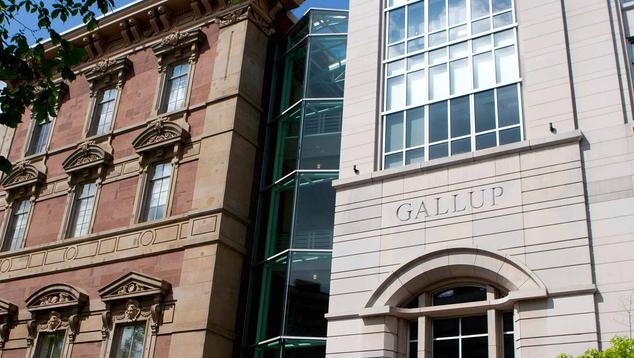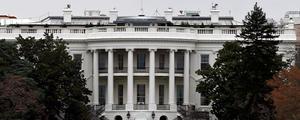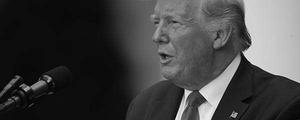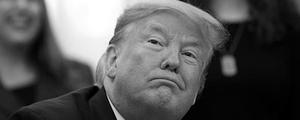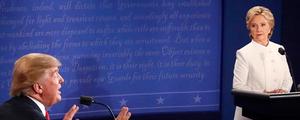After every close election, Gallup is asked to expound on why polling and public opinion research has not seen its final act. In fact, seven decades ago, our founder, responding to a question identical to the one we have seen surface since the 1940s -- "Can we trust polling?" -- said:
"My hope is that next time polls are on the wrong side in a close election there will be less shouting and name calling." -- George Gallup, address to World Association for Public Opinion Research, circa 1949
The "Horse Race" Versus the Will of the People
When Dr. Gallup (1901-1984) started using elections as testing grounds to prove his new sampling methodology, it was a truly innovative moment for polling methods, which, to that point, had been merely sampling principles.
But even back then, he often cited his election forecasts as "the least important part of our work," and stated: "The most practical way at present to measure the accuracy of the sampling referendum is to compare forecasts of elections with election results … the chief usefulness of the sampling survey however does not lie in forecasting elections. While such forecasts provide an interesting and legitimate activity, they probably serve no great social purpose."
For decades, an increasing number of organizations joined the pool of those relying on sampling methodology and "likely voter" models to forecast the outcome of elections.
Many have asked us why we stepped away from presidential-race polling before the 2016 election. Our answer is simply that many others are now polling the "horse race."
Just 30 years ago, there were only a handful of organizations doing such work.
"My hope is that next time polls are on the wrong side in a close election there will be less shouting and name calling." -- George Gallup
At Gallup, we always strive to add value in the areas where it is most needed. Although election forecasts serve a purpose, the future of our work and the focus of our clients and partnerships are about tracking how 7 billion citizens across the globe are leading their lives on all the other days that they do not happen to be voting.
For the past several years, we have been diligently shifting our resources to the biggest need and the next great frontier: the will of the whole world. Gallup maintains unparalleled trends on U.S. public opinion and behavioral metrics across the political, economic and social domains. Taking that experience and all it has taught us, and aiming it at tracking the global statistics on human development -- measuring 7 billion global citizens' lives in all their manifestations -- is our mission and calling.
At Gallup, we know that relying on the methods we have developed, and the best practices of the polling industry, can still garner highly valid and replicative data across a broad range of crucial topics.
While there may be challenges to forecasting elections via polls and "likely voter" models that will be examined by the American Association of Public Opinion Research (AAPOR) and others in our industry, responsibly gathered and reported public opinion research still has immense value and will be with us for the foreseeable future.
But Weren't the Preelection Polls Wrong?
That said, the latest U.S. election and round of polls on the state and national levels offer some hard and important lessons. Candidate and horse-race polling is a challenging endeavor, with two major sources of potential error: 1) normal sampling error associated with any poll of U.S. adults; 2) likely voter modeling that seeks to discern which respondents will vote and which will not in a given election.
Although some polls were not highly predictive of the precise vote distribution, the vast majority were within their reported margin of sampling error and, as in 2016, most did predict the correct winner of the popular vote nationally and in most states.
It is too early for broad conclusions about the accuracy of the 2020 polls, but careful investigations continue on exactly how and why some polls missed the mark. Yet we know a few things today:
-
State-level polling is more challenging to do accurately than national sampling.
-
While election-week criticisms of polling errors were premature and overly broad, some polls did accurately forecast a closer or less close election in key swing states.
-
AAPOR has assembled a committee to methodically study these and other questions regarding the accuracy of horse-race polling, and they will report to the public what they find. As a founding member of AAPOR, Gallup is proud that three of those committee members are Gallup senior editors and some of our most experienced colleagues in this space.
-
One initial hypothesis is that there is a systemic challenge of capturing the strength of support for President Donald Trump in some polls. Many have prematurely concluded that this is attributable to social desirability bias on the part of Trump supporters, such that they did not truthfully report their support for the president. But it remains too early to conclude that, and it is certainly unclear whether this is unique to Trump supporters or applies to "leaning Republican" in general.
Gallup's Promise
Since the 1930s, our founder set us on a path and a promise that we keep to this day: Never take a side on any issue, but accurately measure and report on the will of the people. That is why, for over 80 years, we have never worked -- and will never work -- for any party, Republican or Democrat, any candidate, or any of the special-interest groups that swarm around them.
Dr. Gallup's teaching was that we not only maintain a commitment to nonpartisanship, but -- equally as important -- to always maintain the appearance of nonpartisanship in everything we report, every question we design, every headline we publish.
It is not merely a statement of policy, but a promise that each of our analysts, editors and team members fulfill every day.
At a time when societies are divided, U.S. political polarization is at a historical high and trust in information is in decline, there has never been a more important time for the public to have faith in the science of polling to dispassionately document the will of the people. In that context, we are as committed as ever to our chosen ethics of nonpartisanship and transparency.
The future of quantifying and tracking how 7 billion global citizens live their lives is more crucial than ever.
